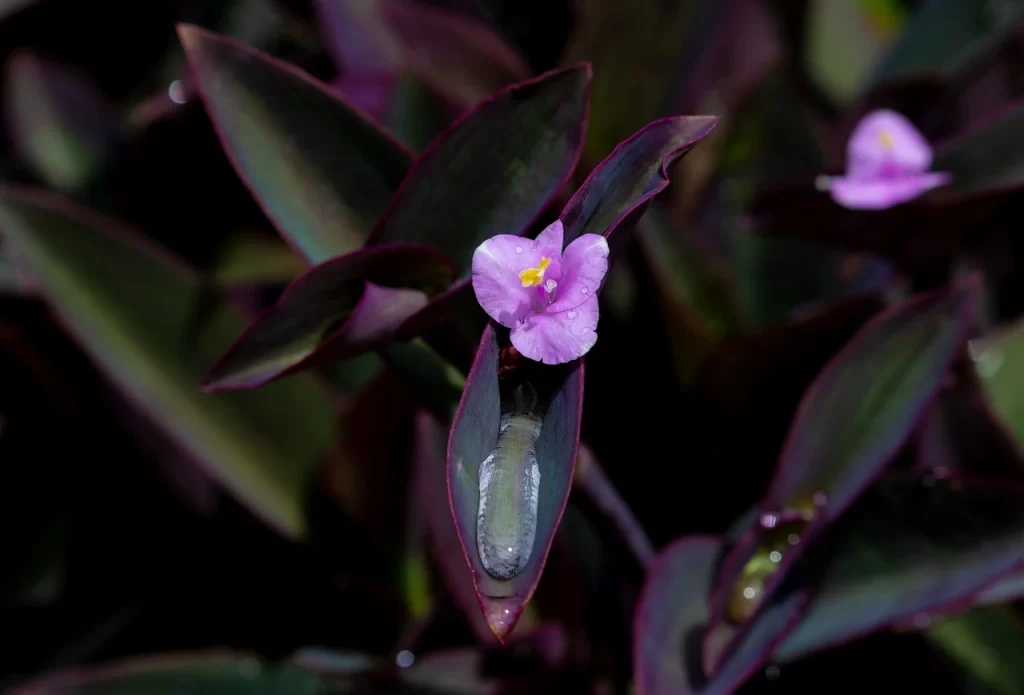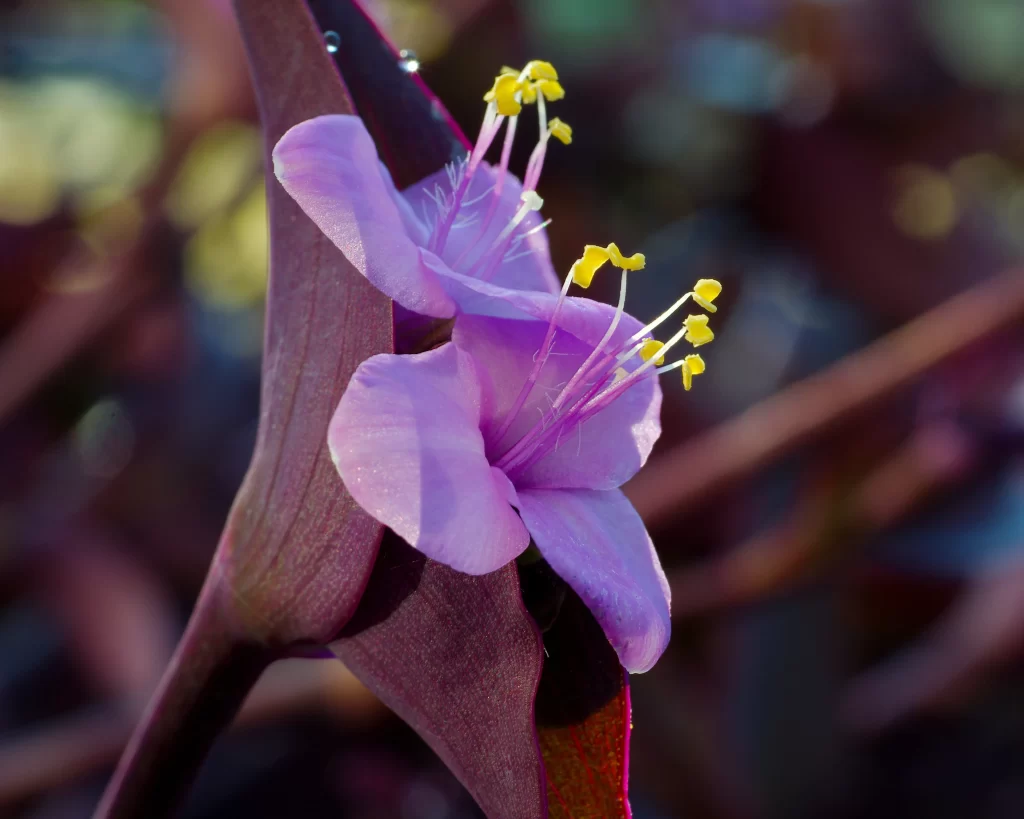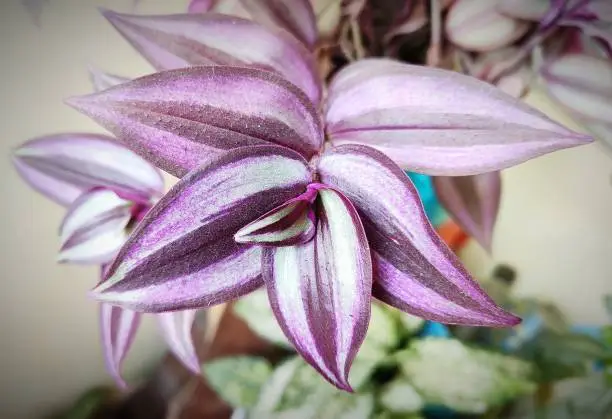The Wandering Jew plant, scientifically known as Tradescantia pallida, poses a potential threat as it possesses toxic substances that may be unsafe to cats. This architectural plant contains a high concentration of allergic substances, particularly in its leaves. Pet owners should exercise caution and keep their cats away from Wandering Jew plants to prevent accidental ingestion, which could lead to adverse reactions and health issues in these animals.

Read: Philodendron Micans – Propagation, Care, and Toxicity
Almost all the Tradescantia family plants have non-poisonous substances in their plant parts. However, they possess allergic substances. The Wandering Jew plants belong to the Tradescantia family and are non-toxic to cats and other household animal companions like dogs, yet carry a cautionary note for pet owners if exposed to this allergic plant.
The Toxicity Profile of Tradescantia plant family
Allergic reactions usually happen when you touch or eat certain plants. The most common symptom is skin irritation. Examples include wax plants, chrysanthemums, geranium, wandering jew (spiderwort), inch plants, and citrus plants. Skin contact or ingestion may lead to common symptoms like skin irritation. Be cautious with these plants to avoid potential skin issues or discomfort, especially for individuals prone to allergies, so be careful when dealing with them.

Toxicity Profile of Wandering Jew Plant
The Wandering Jew, a lively member of the Tradescantia family, adds beauty to indoor or outdoor spaces. Yet, caution is crucial regardless of the plant choice for your landscape. Be mindful of potential risks, especially for children and pets like dogs and cats.
The Wandering Jew plant, part of the Tradescantia family, comes in categories of allergenic Plants that have stuff in their leaves that can cause allergies. If you touch or eat it, you might get skin irritation. But some types, like Tradescantia albiflora, Calisisa, and Zebrina, are not poisonous. Just be careful with cats and dogs, as they can cause allergies.
Read: Is Christmas Cactus Poisonous to Cats?
However, other symptoms can arise in case of contact with other body parts of the cats or other animal companions; the following are:
- Skin contact causes irritation, rashes, and itching.
- In case of skin irritation, rinse/wipe the affected area with cold water. Apply healing ointments for skin damage—Irrigate eyes with a saline solution. However, caution is necessary to avoid these adverse effects.
Pets ‘ ingesting Wandering Jew plantCroton Plant Toxic To Cats: What Pet Owners Should Know leaves may lead to various allergies. Caution is advised to prevent accidental exposure, and household animal owners should be aware of the potential risks associated with this plant. Awareness of the toxic nature of Wandering Jew’s leaves is crucial for ensuring the well-being and safety of household pets.
Awareness About Toxicity Profile Of Plants
A toxic plant has chemical substances, like the Croton plant, that contain allergic substances. This allergenic plant arises when it is hurt, making animals, such as cats and dogs, allergic if they eat it. However, it is to be noted that some plants have different poisons that can cause mild to severe problems. However, plant owners need to know about these problems:
- Check out the list of all poisonous household plants from any reliable source that might cause danger and even death to household companions[1]Toxic and Non-Toxic Plant List. Read.
- If a plant is being ingested, take it out of the mouth, rinse it with water thoroughly, and call your doctor or vet immediately.
Symptoms of Being Exposure to Allergic Plants in Cats
Ingesting Wandering Jew plant parts, particularly leaves, can lead to allergic reactions in cats, with symptoms including skin irritation. Immediate attention is crucial if your cat shows signs of ingesting Wandering Jew plants or other toxic plants[2]Toxicity Profile of Plants. Read. However, if the cause is not treated and diagnosed promptly, cats or dogs may get potentially more severe effects like kidney or liver damage.

However, Wandering Jew plants are non-toxic to cats if ingested, posing no severe health risks. However, their leaves have an allergic composition that can cause cat allergic symptoms. To ensure pet safety, keep Wandering Jew plants out of reach and provide alternatives for your animal companions.
Read: ZZ Plant Toxic To Cats? A Must-Know Guide
Conclusion
Wandering Jew plants can threaten cats, causing skin irritations and discomfort if they are in contact with them. Recognizing symptoms is crucial in pets; seek to help them recover quickly by treating them on time. This article has demonstrated the toxicity profile of the Wandering Jew plant and its exposure to cats.



